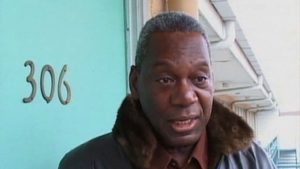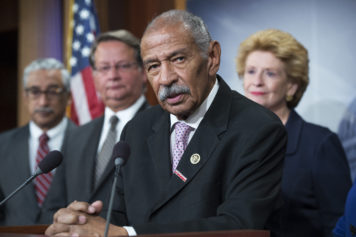D’army Bailey, a veteran civil rights activist who was instrumental in turning the site of Dr. Martin Luther King, Jr.’s death into the National Civil Rights Museum, has died at the age of 73. According to the Washington Post, Bailey’s relatives said he had been suffering from cancer.
Bailey organized a group of activists to buy the Lorraine Motel, where King was slain in 1968. The Washington Post reported the nonprofit group raised $144,000 to buy the motel, which had fallen into disrepair. Ironically, the Lorraine Motel fell victim to the very integration policies King had advocated for.
“But [the owner, Walter Bailey] had struggled in the years following the assassination to keep the doors of the motel open, because business had declined with Blacks being able to go to the white hotels, and also this area was declining. And so, the motel went up for foreclosure,” said Bailey in an interview with Democracy Now! host, Amy Goodman.
Bailey told Goodman he was amazed at what he found when his group took over the hotel. The previous owner had tried to preserve some of the historical artifacts, and the balcony still bore marks of King’s assassination.
“You know, I just couldn’t believe, Amy, when they told me, before we even started the renovation, and this balcony was here, and Mr. Bailey had kind of preserved a little room here, which was the room that Dr. King had come out of with bookcases and display of the dishes that he last ate from and the bedspread that had been thrown over him when he lay here on the balcony, so he had created sort of his own exhibit in here,” Bailey said. “But when they told me that that was his bloodstains in this old balcony, it was just hard to believe that in 1968, the assassination, and here we were 20 years later, and the bloodstain is still speaking to us from that concrete.”
Bailey raised millions of dollars to help restore the hotel. In 1991, it opened as the National Civil Rights Museum, costing $9.25 million. However, Bailey would later walk away from the museum after he was ousted as board president. He became unhappy with the direction the museum was taking and didn’t approve of some of the appointees to the board of directors.
“And I recognize that you have to have corporate support, but the problem occurs when it dominates in its support and when the chairman of the executive committee is one of the corporate leaders, a conservative Republican who had George Bush as a guest in his home to raise funds against Congressman Harold Ford, Jr.,” Bailey said.
Born in Memphis, Tenn. in 1941, Bailey joined the civil rights movement early in life, motivated by the lynching of Emmett Till. However, Bailey gained a reputation for taking a more radical approach to fighting for civil rights. He was expelled from Southern University, a historically Black college, for leading anti-segregation protests, which embarrassed the administration.
Students at Clark University raised his tuition money enabling him to graduate from the school. While at Clark, Bailey also fought housing and employment discrimination. He later graduated from Yale Law School and went on to serve as national director of the Law Students Civil Rights Research Council in New York and as a staff lawyer with the San Francisco Neighborhood Legal Assistance Foundation, according to The Washington Post.
Bailey served on the Berkeley, Calif. city council for two years until he was ousted by a recall. Apparently, Bailey’s militant activism had ruffled feathers and his opponents painted him as a “communist and race baiter.”
He returned to his hometown in 1974 and practiced law. In 1990, he was elected for a circuit court judgeship. In 2007, he was passed over for appointment to the Tennessee Supreme Court. Two years later, he left the bench to return to private practice, and in 2014, he was reelected to a circuit court judgeship.
Apart from working in law and being a civil rights activist, Bailey also dabbled in acting, appearing as a judge in the movie, The People vs. Larry Flynt. He also recounted his life story in the 2009 autobiography, The Education of a Black Radical: A Southern Civil Rights Activist’s Journey, 1959-1964.



